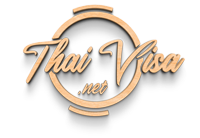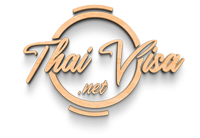Thailand Smart Visa program is designed to attract highly skilled professionals, investors, executives, and entrepreneurs who are pivotal to the country’s Thailand 4.0 strategy—an initiative aimed at transitioning to an innovation-driven economy. Unlike traditional visas, the Smart Visa offers unique benefits such as longer residency, exemption from work permit requirements, and reduced reporting obligations. This article explores the different categories of the Smart Visa, eligibility criteria, the application process, and benefits for professionals and investors.
1. Overview of the Smart Visa Program
The Smart Visa was introduced in 2018 to promote foreign talent and investment in targeted industries that contribute to Thailand’s economic development. These industries align with the Thailand 4.0 agenda and include sectors like:
- Next-Generation Automotive
- Smart Electronics
- Affluent, Medical & Wellness Tourism
- Food for the Future
- Digital and Robotics
- Biotechnology
- Aviation and Logistics
The Smart Visa is available in five main categories, each tailored to specific types of applicants such as highly skilled professionals, investors, executives, startup entrepreneurs, and their families.
2. Categories of Thailand Smart Visa
a) Smart T (Talent)
The Smart T Visa is aimed at highly skilled professionals, particularly in science, technology, engineering, and mathematics (STEM) fields. It is ideal for experts whose expertise is required in Thailand’s targeted industries. Applicants must hold employment in one of these industries, with a minimum salary of THB 100,000 per month.
- Eligibility:
- Expertise in a relevant field.
- Employment contract with a company in a targeted industry.
- Proof of a high level of skill or academic achievement.
b) Smart I (Investor)
The Smart I Visa targets investors looking to inject capital into technology-driven businesses or projects in Thailand. The minimum investment required is THB 20 million, which must be directed into a company operating in a targeted industry.
- Eligibility:
- Minimum capital investment of THB 20 million.
- Investment in a government-approved project or business related to the targeted industries.
c) Smart E (Executive)
The Smart E Visa is for high-level executives holding management positions in technology-driven or innovation-based companies. These executives must have significant experience, with at least 10 years of expertise in their field and be employed in a company with at least THB 10 million in registered capital.
- Eligibility:
- Executive-level employment.
- Extensive experience in management and leadership roles.
- Minimum salary of THB 200,000 per month.
d) Smart S (Startup)
The Smart S Visa encourages startup entrepreneurs to establish innovative businesses in Thailand. Applicants must have a clear business plan and either be engaged in a government-certified incubator program or have secured funding for a startup.
- Eligibility:
- Active in a targeted industry.
- Minimum capital of THB 600,000 or participation in a certified incubator.
- Business plan approval from a relevant Thai authority.
e) Smart O (Other)
This category is designed for spouses and dependents of Smart Visa holders. It allows family members to reside in Thailand for the same duration as the primary visa holder, and spouses can work without needing a separate work permit.
3. Eligibility Requirements
To qualify for a Smart Visa, applicants must meet certain criteria based on their category, such as:
- High-level academic or professional qualifications (for Smart T and Smart E).
- Substantial capital investments in Thai businesses (for Smart I).
- Demonstrated entrepreneurial potential with solid business plans (for Smart S).
Applicants must also be employed or investing in one of Thailand’s targeted industries, which are identified as critical for the country’s economic development under Thailand 4.0.
In addition to fulfilling these category-specific criteria, applicants must demonstrate that their contributions will support the development of innovation, technology, or high-skilled industries in Thailand.
4. The Application Process
The process for obtaining a Smart Visa involves several key steps:
a) Pre-Qualification by the Relevant Government Agency
Before applying for the visa, applicants must undergo a pre-qualification stage to ensure that they meet the requirements of the Smart Visa program. This is done by submitting a Smart Visa Qualification Application to relevant agencies such as the Board of Investment (BOI), Digital Economy Promotion Agency (DEPA), or National Innovation Agency (NIA), depending on the industry.
b) Document Submission
Once pre-qualified, applicants must submit the necessary documentation, including:
- Proof of qualifications and experience.
- Employment contracts, investment agreements, or business plans.
- Financial proof for the applicable visa category (capital investment or salary evidence).
c) Final Approval and Visa Issuance
After the submission of documents, the application is processed by the One-Stop Service Center for Visas and Work Permits or through Thailand’s e-Smart Visa platform. Upon approval, the applicant receives the Smart Visa, valid for up to four years.
5. Key Benefits of the Thailand Smart Visa
One of the key advantages of the Smart Visa is its streamlined immigration processes and numerous exemptions, including:
- No Work Permit Required: Smart Visa holders are exempt from needing a separate work permit, unlike holders of other visa types. This exemption significantly reduces bureaucratic processes for both employers and visa holders.
- Extended Residency: Smart Visas are typically granted for up to four years, which is longer than other visa types that usually require annual renewals.
- Simplified Immigration Reporting: Holders are only required to report their residence to immigration authorities once a year, as opposed to every 90 days, which is required for other long-term visa holders.
- Spouse and Family Benefits: The Smart O visa allows family members to stay in Thailand with the Smart Visa holder, and spouses can work without requiring a separate work permit.
- Multiple Entries: The Smart Visa allows multiple entries into Thailand, offering greater flexibility for business travelers and executives who frequently travel.
6. Challenges and Considerations
While the Smart Visa offers many advantages, there are certain challenges and considerations for potential applicants:
- Stringent Qualification Requirements: The eligibility criteria are strict, particularly in terms of the required qualifications and minimum investment amounts.
- Sector-Specific Limitations: The Smart Visa is only available for industries identified by the Thai government as critical to Thailand’s economic development. Applicants from industries not included in the targeted list may need to consider other visa options.
- Renewal and Compliance: Smart Visa holders must continue to meet the qualification requirements throughout the visa’s duration, including maintaining employment or investment levels. Failure to comply with the conditions can result in the visa being revoked.
Conclusion
The Thailand Smart Visa is an innovative initiative aimed at attracting top-tier talent, investors, and entrepreneurs to contribute to the country’s technological and economic growth. By offering longer residency periods, exemption from work permits, and benefits for family members, the Smart Visa is designed to ease the process for highly skilled professionals and investors seeking to live and work in Thailand. However, strict qualification criteria and compliance requirements mean that potential applicants must carefully assess their eligibility and the long-term viability of maintaining their status under the Smart Visa program.


